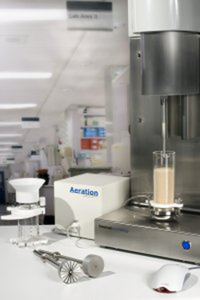So you’ve already bought yourself a half a million dollar metal 3D printer, or, more likely, you’re already leasing one, but you need a place to obtain some metal powder with which to fuse into intricate car parts or streamlined jet engine components. The UK’s LPW Technology is both a customized metal powder supplier and researcher, with their most recent investment in the FT4 Powder Rheometer as evidence of the company’s drive towards material innovation.
LPW is a customized material supplier, offering Aluminium, Cobalt, Nickel, Steel, Titanium and Tungsten Carbide alloy powders and various services to help customers implement metal additive manufacturing, such as conformance certification and stock management. More interestingly, LPW is also in the business of R&D, exploring a number of metal atomization techniques that use gas, water, plasma, electricity, or centrifugal force for unique AM applications. For metal additive manufacturing to make its way into mainstream manufacturing, however, the company had to further ensure that its materials complied with such stringent standards as followed by the automotive and aerospace industries.
Consequently, LPW invested in the purchase of FT4 Powder Rheometers, which aid the company in the analysis of how metal powder flows by measuring the powder in motion. Because the Rheometers combine three tests into one, researchers at LPW are able to further understand the properties of their materials. Research and Development Manager at LPW, Dr. Robert Deffley, pointed out how the new device is used to test metal powder for 3D printing:

…Additive manufacturing processes are currently used to produce components with ‘fit and form’, that is prototypes used for advanced product development. The next goal is to robustly engineer in ‘function’ – the controlled porosity for a replacement bone, for example, or complex channels for a more efficient aerospace cooling system. We’re learning that to rigorously cater for these applications we need a more robust understanding of our powders and that these must have tightly controlled, repeatable behaviour which is consistent from one batch to the next.
LPW is currently exhibiting at Euromold and just yesterday gave a lecture titled “An intelligent powder supply chain for successful, industrial, Additive Manufacturing”.


